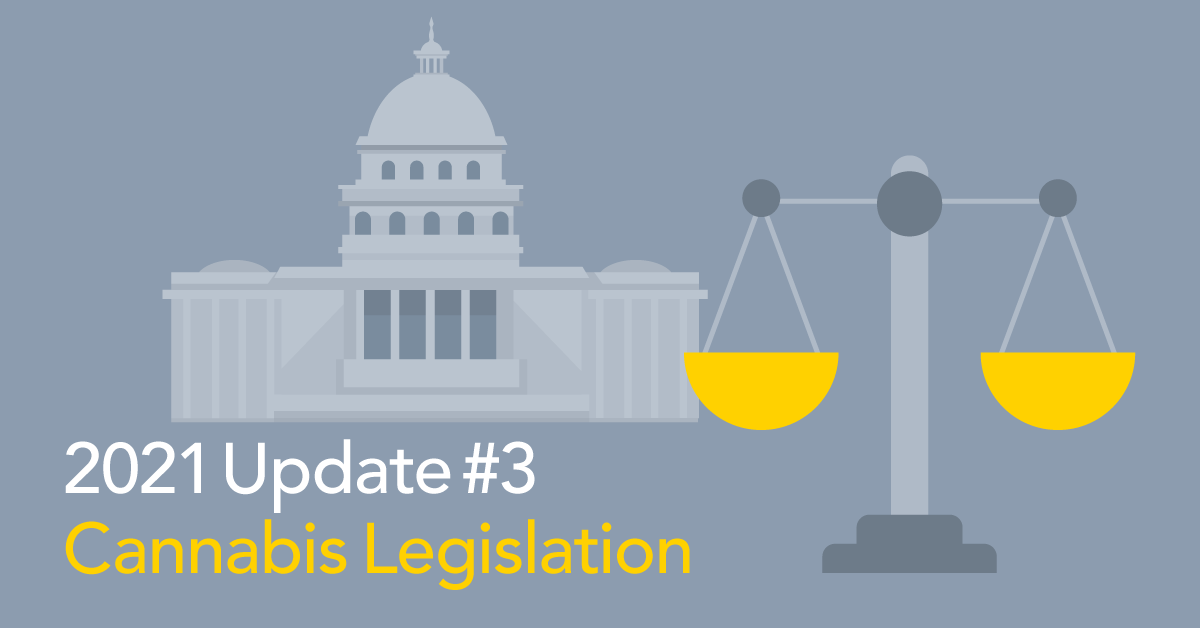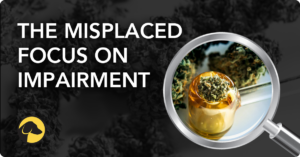
Federal Cannabis Reform Bill Could Provide Clarity
In a significant move to push forward federal cannabis reform, Senate Majority Leader Chuck Schumer (D-NY) recently introduced a working draft of a wide-ranging bill that would, among other things, remove cannabis from the federal list of controlled substances and allow states to legalize and regulate cannabis as each sees fit. The proposal also includes significant social equity provisions to make up for past enforcement of cannabis laws while also providing funding for impacted communities.
Senator Schumer’s proposal provides a good framework to clear up a tremendous amount of ambiguity created by the absence of federal laws. However, this draft bill does not provide the guidance needed to address the growing issues that state-by-state cannabis reform has created for workplace drug testing. Employers are trying to navigate a brave new world of drug testing that still demands safety but also introduces the need to be fair to employees who increasingly have the right to legally use recreational cannabis. Unfortunately, with no guidance from the federal government in the last decade (since Colorado and Washington became the first states to legalize recreational use of cannabis), employers and employees have been left “holding the bag”– often facing the untenable position of choosing between keeping employees safe and treating them fairly. The burgeoning legality of cannabis cannot be at the risk of sacrificing safety or continuing adverse workplace consequences. This is the time for federal direction that recognizes the impacts of cannabis legalization on established workplace drug testing practices and that facilitates the use of new technologies to help employers and employees address the challenges arising from cannabis legalization.
A MISSED OPPORTUNITY TO PROVIDE CLARITY TO EMPLOYERS AND EMPLOYEES
With 18 states having adult recreational use laws and 37 with legal medicinal use laws, employers and employees face some uncomfortable realities. Employees in these states have the right to use cannabis, while employers have legal and insurance-related obligations to keep worksites and retail locations safe and free from drug-impaired workers. The complexities for employers with a national footprint are almost impossible to navigate without a team of legal consultants. Certainly, leading employment law firms such as Ogletree Deakins are helping employers make sense of the dizzying number of cannabis laws, but simplification would serve employers and employees well. For example, a company with a national footprint must consider at least 55 different cannabis laws – recreational and medical – in addition to the myriad of laws that regulate drug testing. The explosion of laws since 2012 not only impacts employers, but also impacts employees. Employees who live in a state that allows legal recreational cannabis use may work in a state that does not. Other employees who travel for work may encounter a different legal status for cannabis use in each state.
It’s not only the abundance of cannabis laws that are burdening national and regional companies, current cannabis tests (oral fluid, hair, urine, and hair), which were designed when cannabis use was illegal, no longer provide the information that employers and employees need, further burdening companies with the unwinnable debate between safety and employees’ legal rights. With the expansion of cannabis legalization, employers know they need to update their drug testing policies, but they are hamstrung by the maze of different state laws that often do not make it easy to choose the latest technology. Without access to the latest cannabis testing technology, employers must rely on traditional cannabis tests that indicate positive results well beyond the impairment window – leading to unfair outcomes for both employers and employees.
FEDERAL VS. STATE LEGISLATION TO HELP EMPLOYERS AND EMPLOYEES NAVIGATE THE BURGEONING LEGALITY OF CANNABIS
Although the current draft bill does not contain the necessary language to protect employees from unfair cannabis tests while also supporting employers’ obligations to keep worksites, employees, and customers safe, the good news is that Senator Schumer has said this bill is just a starting point and he is seeking input from stakeholders on all aspects of this proposal.
There is always debate regarding the role of federal vs. state legislation, and there are, of course, pros and cons to each approach. However, a cogent argument can be made that now that cannabis may become federally legal, it is time for a federal framework for cannabis testing.
SO HOW COULD SENATOR SCHUMER’S DRAFT BILL BE AMENDED TO BETTER ADDRESS THE ISSUES EMPLOYERS AND EMPLOYEES FACE AS THEY TRY TO BALANCE SAFETY WITH LEGAL CANNABIS?
For one, a singular federal law tackling workplace drug testing for cannabis would be a step in the right direction and would make testing easier to understand for all involved. Employees would know the expectations and liabilities, and employers would feel more comfortable utilizing testing strategies that would not only help maintain safety but would also eliminate some legal risk. A federal law would also ameliorate the unsustainable position that employers in many states now face – choosing between safety and fairness.
The law should also include language to eliminate cannabis tests that detect non-active THC metabolites, building upon the laws established in New Jersey and Connecticut. In addition, cumbersome requirements for point-of-care testing (“POCT”) should be removed for cannabis testing. This is a critical consideration because the characteristics of cannabis (which has an impairment window of hours) are much better suited to testing on-site rather than waiting hours to test at a lab. The guidance for POCT should also include language that says cannabis testing technology can isolate active THC. These changes to the current proposal would move it further towards promoting safety and fairness, which aligns nicely with the social equity provisions of the legislation. In this age of legal cannabis and ever-growing acceptance of its use, Hound Labs has heard from employers from almost every state in the country that they want new technology to test for recent cannabis use. Hound Labs has also heard from an increasing number of employers who have conveyed that they are struggling to attract and keep employees due to failed cannabis tests. As a matter of fact, employees at several companies are pushing their employers to adopt breath testing technology to balance SAFETY+FAIRNESS™. Congress can and should resolve these issues by providing clear directives to employers and employees around workplace cannabis testing that balances both employees’ rights to use cannabis while supporting employers’ responsibilities and the public’s expectations to keep jobsites safe.

August 10, 2021
By DOUG BOXER
Chief of Policy + Strategic Initiatives
Share












